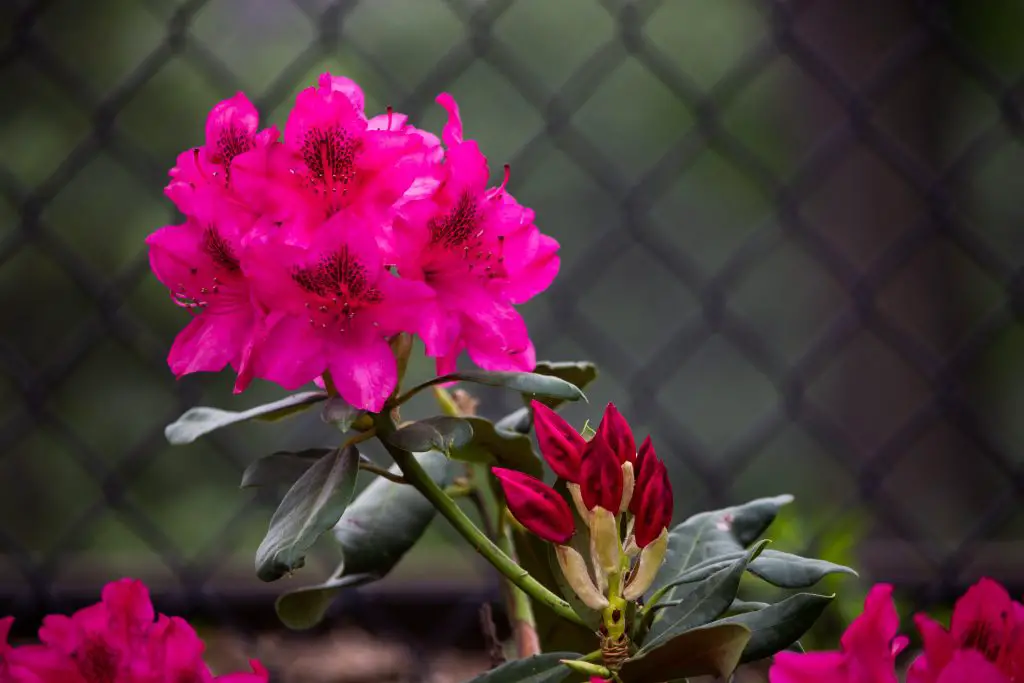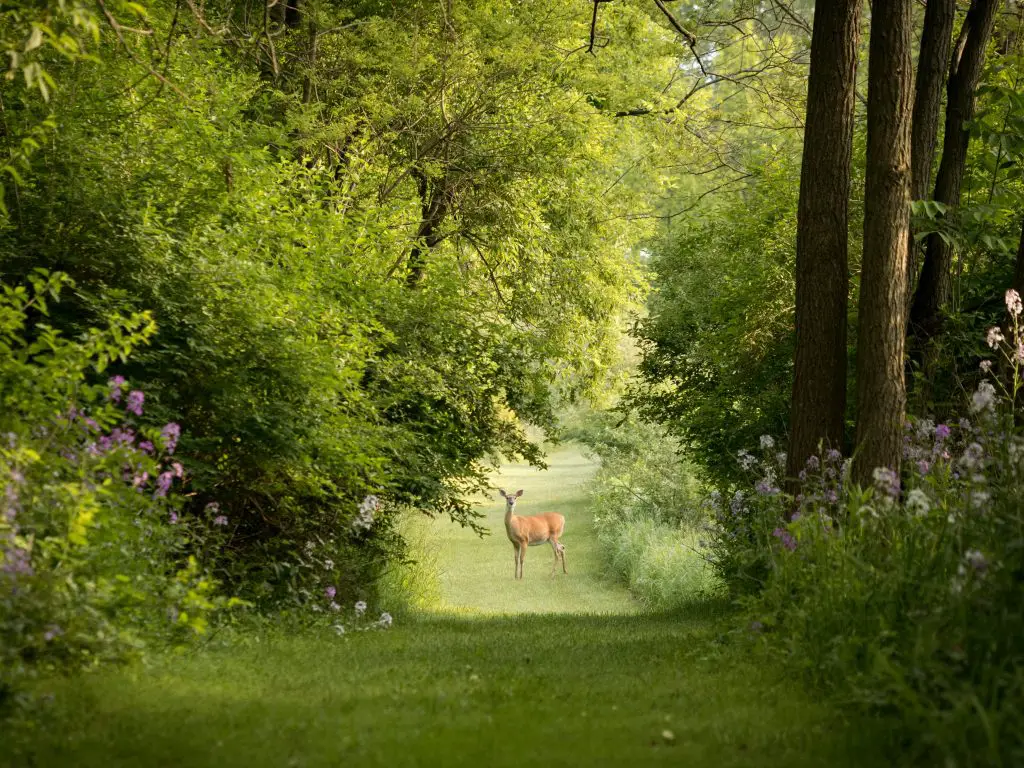Do Deer Eat Azaleas? Azaleas are an evergreen perennial plant that is popular in many cottage gardens around the world. However, if you live in an area that has a large deer population is this a plant that you can grow? Or will the deer eat your Azaleas?
Azaleas are not deer resistant and are classified by the New Jersey Agricultural Experimentation Station as being “frequently severely damaged” which means that if you are planting to grow azaleas in your garden you need to provide significant protection to ensure that the plants survive.
How Can I Stop Deer Eating My Azaleas?
There are several different methods that are employed by gardeners to ensure that the azaleas are not eaten by deer however the only method that is truly 100% certain to work is if you can exclude deer from your garden entirely.
To achieve this it is necessary to surround your garden with a fence which can be extremely expensive. The reason for this is that dear are capable of jumping fences that are 6 ft high which means that you need to put in a fence that is at least 7 to 8 feet tall to prevent the animals from getting in. In extreme cases, some people also electrify the fence. To read more about this click here.

What Are The Options Can Be Used To Deter Deer?
There is a huge range of options available on the market that is designed to deter or repel deer from your property. However, not all of them are equally effective and even the most effective ones do not protect your plants 100% of the time despite what the manufacturers may say.
The reason for this is that deer are relatively smart animals that learn over time the patterns of defence that are used to protect a garden. As a result of this, no one deer repellent method will work for an extended period of time. You need to be constantly changing you’re repellent methods so that the local deer population do not become acclimatized to these protective systems.
However, there are a few basic things that you can do with the structure of your garden which will inherently make your garden less attractive to deer.
The first thing that you can do is plant relatively deer-resistant plants at the outer edges of your garden to discourage them from entering your garden. As a general rule, deer-resistant plants are highly fragrant, poisonous, or thorny which makes them less palatable for the deer.
However, these rules generally need to be taken with a grain of salt as things like roses which have thorns are regularly eaten by deer as an example. If you are selecting plants for this purpose visit the New Jersey Agricultural Experimentation Station website as they have a wide list of plants that are rated based on their attractiveness to deer.
This list can also be used to identify plants that are at risk and need further protection. If they are plants that deer particularly like it is advisable to plant them close to your house as your mere presence will serve as a deterrent for much of the day.
Additionally, these plants will be less visible from the outer part of the property making it less likely that deer will pay these plants a visit if they don’t know they are there.

Chemical Deer Repellents
There is a wide range of deer repellent solutions and powders that are available to purchase. However, the effectiveness of these deer repellents does vary depending upon the mechanism that they are using to repel the deer.
Academic studies have shown that repellents that use chemicals that instill fear into the deer are the most effective. These products are typically made from the urine or blood of common predators or using petrified eggs which also mimics the smell of some predators.
However, despite the initial effectiveness of some of these repellents, their effects are limited in most cases to somewhere between 10 and 12 weeks according to many of the studies undertaken. After this time deer activity in the area where the repellent is applied will increase substantially as the deer become accustomed to the particular repellent formulation.
Therefore it is advisable to change the deer repellent being used every 2 to 2 1/2 months to ensure that the repellent remains effective on an ongoing basis. As such we would recommend that you actually buy two to three different products. To read more about the specific types of deer repellents that work the best click here.

Mechanical Deer Repellents
The other type of deer repellent that is available mechanical dear repellents which include things like motion-activated sprinklers ultrasounds and lights. These devices are generally considered to be less effective than the chemical deer repellents as animals become a custom to their response within a week or so which means they can only be used sparingly to reduce damage to your plants.
However, I would also highlight that ultrasound emission systems have been found to be completely ineffective in deterring deer and other types of animals such as rodents. So if you are considering this type of system do not buy an ultrasonic system because it will not work.
Other Methods Of Protecting Azaleas From Deer
Aside from using repellents to get rid of deer the only other option if none of the other methods work is to physically protect the plants with guards. lant guards can be applied to individual plants or to a group of plants to protect them.
If the space that you are protecting is relatively small then the height of the fencing or guard does not need to be anywhere near as tall. The is because deer do not like to enter enclosed spaces to access plants for fear of being trapped as such a small fence with a height of 4 to 5 ft is often enough to deter the deer from attacking your azaleas.
I hope you found this article useful. If you have any additional questions or comments please leave them below. Good luck.
Relevant Articles
Does Deer Repellent Really Work? (All The Answers Based On Academic Research)
How High Can A Deer Jump? (And What Type Of Fence Do I Need To Build To Keep Them Out)
Are Raspberries Deer Resistant? (And How To Protect Them)
